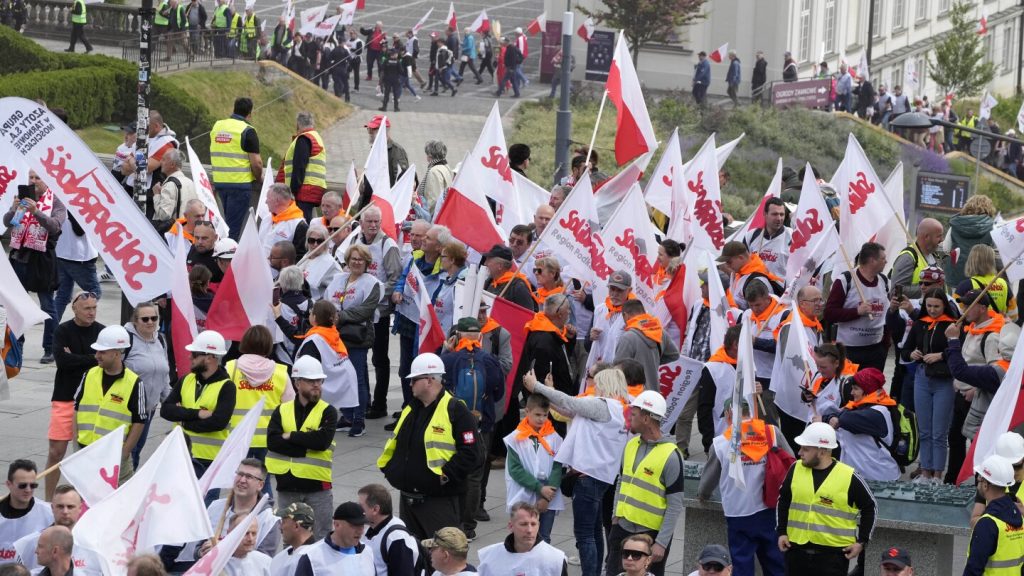Tens of thousands of Polish farmers took to the streets of Warsaw to protest the European Union’s climate policies and show their opposition to the pro-EU government of Prime Minister Donald Tusk. The farmers, organized by the Solidarity trade union, expressed their concerns about the Green Deal policy that aims to make agriculture more climate-friendly. They feel that these policies interfere with their work and impose high costs on them, leading to feelings of being enslaved on their own land. The farmers expressed frustration with the requirements of the Green Deal, stating that it makes it difficult for them to diversify their crops.
During the march, the farmers stopped at the EU Warsaw office and the parliament, displaying banners with slogans such as “Let Brussels eat worms, we prefer pork chops and potatoes.” The protest coincided with the upcoming European Parliament elections, with the right-wing opposition party Law and Justice showing support for the demonstration. The party, which previously held power in Poland, is seeking to regain political momentum. Prime Minister Tusk announced a Cabinet reshuffle, replacing four ministers who are running for the European Parliament. These changes are seen as an opportunity to bring new energy into the government, which has been undergoing reforms in various sectors.
The reshuffle in Tusk’s Cabinet is part of an effort to bring order and address the interests of the state. Tusk’s pro-European Union government has been reversing the policies of the previous administration, which had strained relations with the EU. The government is working to free the judiciary and state media from political control, as well as holding accountable those responsible for mismanagement of state-owned companies. The replacement ministers include individuals with backgrounds in culture, economics, and politics, reflecting a diverse range of expertise. These new appointments are set to take office after the formal appointment by President Andrzej Duda.
The changes in the government come at a crucial time as Poland prepares for the European Parliament elections. Tusk’s government is determined to continue its efforts to align with EU policies and ensure accountability and transparency in various sectors. The protests by the farmers highlight the ongoing tensions between agricultural interests and climate policies, with concerns about the impact on livelihoods and the ability to make a living from farming. The government’s response to these concerns will be crucial in maintaining social stability and addressing the needs of various sectors in Poland.
Overall, the protest in Warsaw serves as a reflection of the challenges facing Poland as it navigates its relationship with the EU and addresses the concerns of its citizens, particularly those in the agricultural sector. The government’s reshuffle and commitment to reforms indicate a willingness to adapt to changing circumstances and address the needs of the population. As the country moves forward, it will be essential to find a balance between meeting EU requirements and supporting the livelihoods of farmers and other sectors of society. The outcomes of the upcoming elections and the government’s response to the protests will have a significant impact on the future direction of Poland’s policies and relationships with the EU.


